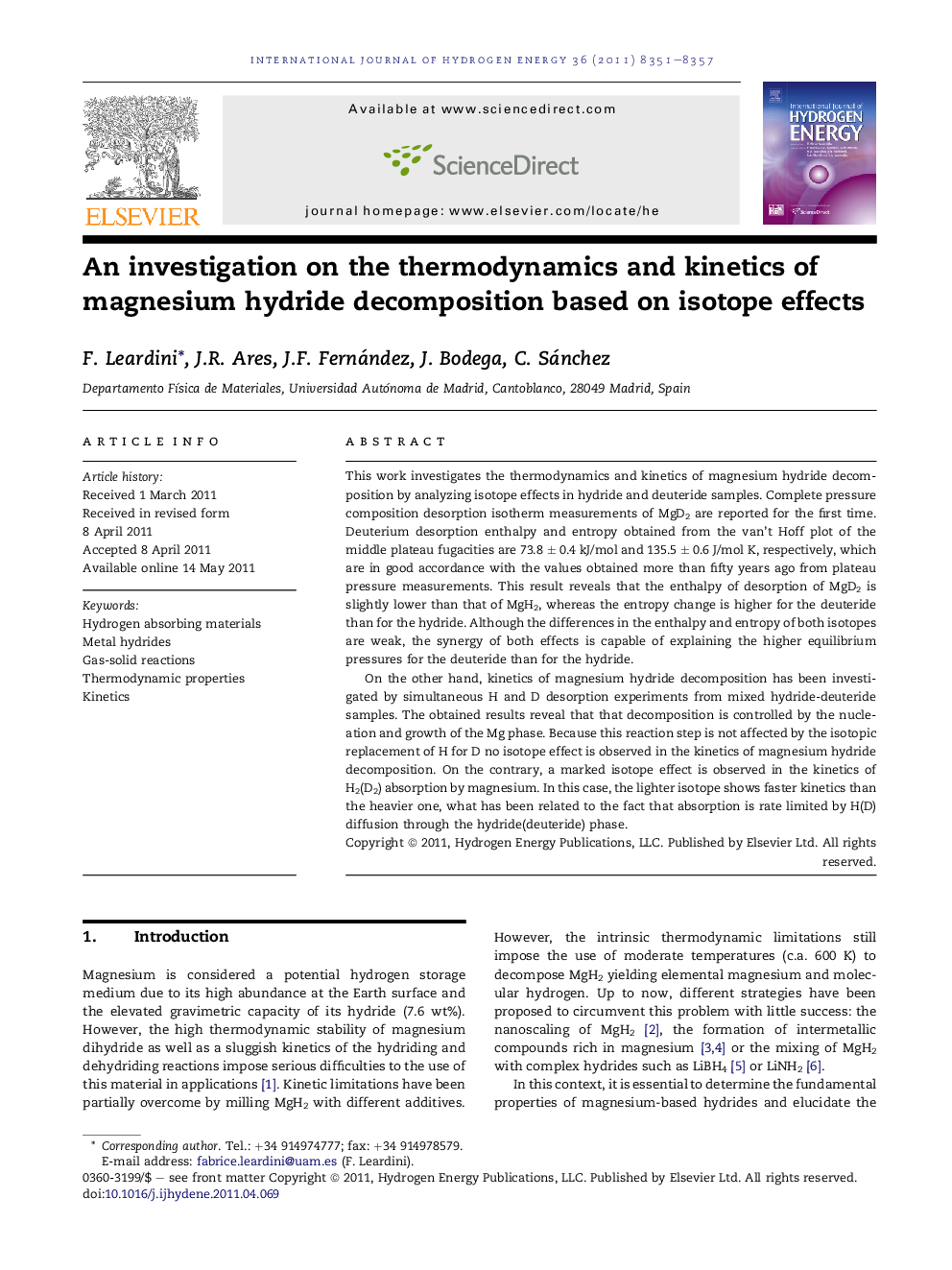| Article ID | Journal | Published Year | Pages | File Type |
|---|---|---|---|---|
| 1279149 | International Journal of Hydrogen Energy | 2011 | 7 Pages |
This work investigates the thermodynamics and kinetics of magnesium hydride decomposition by analyzing isotope effects in hydride and deuteride samples. Complete pressure composition desorption isotherm measurements of MgD2 are reported for the first time. Deuterium desorption enthalpy and entropy obtained from the van’t Hoff plot of the middle plateau fugacities are 73.8 ± 0.4 kJ/mol and 135.5 ± 0.6 J/mol K, respectively, which are in good accordance with the values obtained more than fifty years ago from plateau pressure measurements. This result reveals that the enthalpy of desorption of MgD2 is slightly lower than that of MgH2, whereas the entropy change is higher for the deuteride than for the hydride. Although the differences in the enthalpy and entropy of both isotopes are weak, the synergy of both effects is capable of explaining the higher equilibrium pressures for the deuteride than for the hydride.On the other hand, kinetics of magnesium hydride decomposition has been investigated by simultaneous H and D desorption experiments from mixed hydride-deuteride samples. The obtained results reveal that that decomposition is controlled by the nucleation and growth of the Mg phase. Because this reaction step is not affected by the isotopic replacement of H for D no isotope effect is observed in the kinetics of magnesium hydride decomposition. On the contrary, a marked isotope effect is observed in the kinetics of H2(D2) absorption by magnesium. In this case, the lighter isotope shows faster kinetics than the heavier one, what has been related to the fact that absorption is rate limited by H(D) diffusion through the hydride(deuteride) phase.
► Pressure composition desorption isotherms of magnesium deuteride. ► Enthalpy and entropy of magnesium deuteride decomposition. ► H/D isotope effects in the kinetics of magnesium hydride decomposition.
